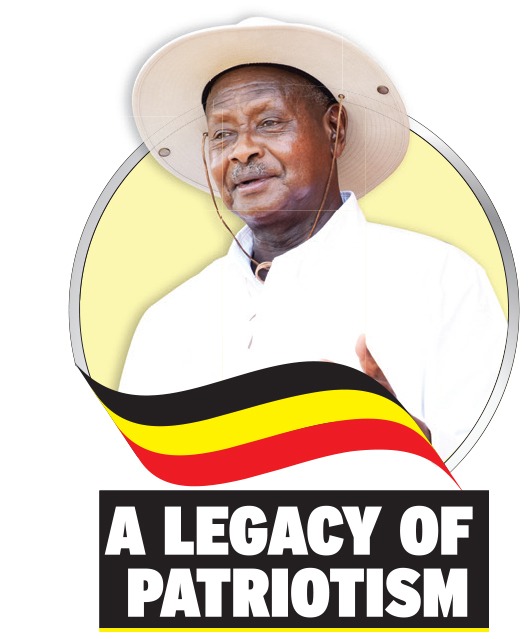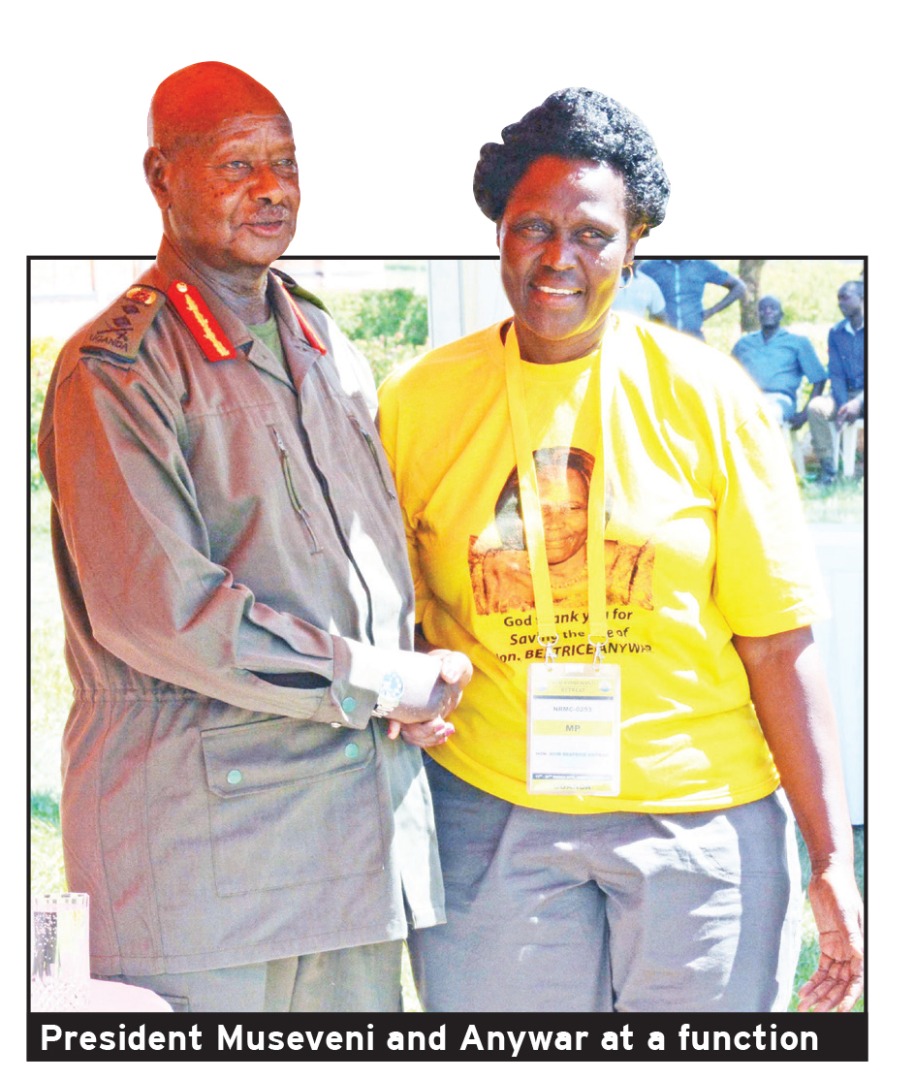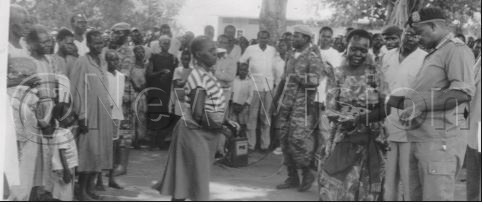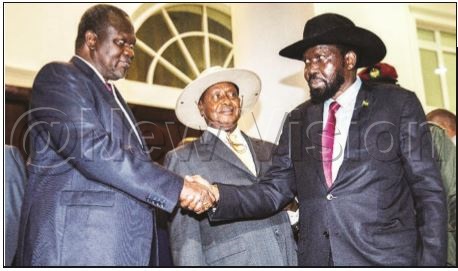The leader in times of crisis
SPONSORED CONTENT
After capturing state power in 1986, the National Resistance Movement (NRM) found itself in a crisis, as it was short of political and technical officials. As a pragmatic leader, President Yoweri Museveni reached out to Paul Ssemogerere, the DP president general who had been internal affairs minister under the shortlived Tito Okello Lutwa Junta.
He also reached out to UPC chairperson Haji Badru Wegulo, assistant secretary general Cecilia Atim Ogwal and DP deputy president general Andrew Adimola, to help the new government identify talent from their ranks.

For the first time, Uganda witnessed an inclusive government that did not discriminate against people. Rather than take revenge against the defeated Uganda National Liberation Army (UNLA), Museveni welcomed a delegation led by the deposed army's chief of staff, Maj. Gen. Zeddy Maruru and his aide, now Gen. Edward Katumba Wamala, to plead that their soldiers be integrated into the NRA, now UPDF.
Other fighting groups like the Uganda Freedom Movement (UFM), under Dr Andrew Lutakome Kayiira, the Federal Democratic Movement of Uganda under Dr David Lwanga, the Uganda National Rescue Front under Moses Ali, and former Uganda National Army under Maj. Gen. Isaac Lumago, were also integrated into the NRA.

POLITICAL PACIFIER
During his peak in the opposition, Aggrey Awori, an intelligent politician from Busia was described as a ‘thorn' in Museveni's otherwise smart shoes.
A UPC stalwart, Awori was a great speaker, lacing his attacks at government with media friendly quotes. Before that he had led a rag tag rebellion in eastern Uganda in a bid to try and overthrow the new government.
Years later, Awori joined the NRM government and even became a minister. It was because Museveni keeps no grudges. He loves talking if given the opportunity. The list of former political opponents who are now serving the NRM government is long.
From the likes of Beti Kamya (formerly FDC), Beatrice Anywar (formerly FDC) Betty Amongi (UPC), Christopher Kibazanga (formerly FDC), Charles Mayega (UPC) and Florence Kiyingi (DP). Even MPs like Theodore Ssekikubo and Barnabas Tinkasimire who in the past have taken radical positions from that of the party are still accommodated by Museveni.
"Unlike other political leaders in this country, President Museveni likes talking peace. I have joined his government from the opposition because he talked to me and I understood the challenges of leadership that the country is going through. That is how politics should be," Beatrice Anywar said after she left FDC.
INSURGENCIES
No Ugandan leader has ever been attacked by as many rebel outfits as Museveni. Since 1986, over 24 armed rebel groups have tried to overthrow the Museveni regime. The first military opposition came in August 1986. An NRA unit commanded by the late Col. Jet Mwebaze was attacked by rebels from the Sudan.
The rebels were mainly former UNLA soldiers. Between 1986 and 1988, remnants of the UNLA unsuccessfully operated under the auspices of the Uganda People's Democratic Army. When they failed to make impact, Alice Lakwena, appeared on the scene and fomented rebellion. Lakwena was defeated at Magamaga near Jinja in 1989.
In the east, the Uganda People's Army (UPA), led by former UNLA officer Peter Otai and Hitler Eregu waged war, with their main bases in Teso region. The group was defeated in 1990.
From the ashes of Lakwena's Holy Spirit Movement rose the Lord's Resistance Army (LRA), led by Joseph Kony. Between 1991 and 2005, the LRA caused mayhem in northern Uganda. With support from the Sudanese government, the rebels raped, maimed and abducted children.

The LRA had sufficient supplies from the Sudan, in return to assisting the Sudanese government fight the Sudan People's Liberation Movement/Army. Sudan backed LRA and Uganda backed SPLA, which pressured Sudan to begin talks with SPLA and also compelled LRA into talks.
In 2001, Museveni ordered an operation into the Sudan and larger units of the LRA entered Teso in 2003. By 2004, they had been chased back into the Sudan and, in 2005, they accepted to hold peace talks. The talks were held in the South Sudan capital, Juba. However, the LRA leader did not turn up.
The LRA moved their forces into Garamba national park in the DR Congo. With the peace talks failing, Museveni, ordered another operation against the LRA in 2008. Rebel camps were destroyed, pushing the LRA farther north into the CAR.
In the west, Museveni had to fight off attacks by the Allied Democratic Forces (ADF) between 1995 and 2002, when they were chased out of Uganda, into the DRC forests.
The ADF is perhaps the second most powerful group to engage Museveni, with their worst atrocity being the attack on Kichwamba Technical College, in which over 80 students were massacred. To defeat them, Museveni created a specialised unit, called the Alpine Brigade that hunted them out of their hideouts in the Rwenzoris.
They sneaked into Kampala and, between 1998 and 2002, their bombs killed at least 80 Ugandans. Gradually, their cells in the city were broken and finally defeated.
Former battlefield rivals join UPDF
In the military, the NRA /UPDF has over the years allowed hundreds of former rivals on the battle fi eld to join it. In the later stages of the bush war, nearly half of the defeated government combatants in Masaka joined the NRA, after talking peace. Some of these rose into respected commanders.
These include the late Maj. Gen. Julius Oketta and Col. Santos Olanya. Others from the UNLA include generals Francis Okello, Nakibus Lakara, Charles Otema Awany, Andrew Gutti , the late Col.Walter Ochora, the late Col. Fearless Obwoya, who all grew in rank and took up high ranking command positions in the UPDF.

PACIFYING REGION
In the region, although Museveni had differenced with former Sudan leader Omar Bashir, he chose to be the pacifier after several years of confl ict. He helped broker the peace talks between the south and north Sudan.
By 2010, a peace agreement had been signed and South Sudan had become independent. Museveni has continued to ensure that the young South Sudan government stays stable, amid volatile challenges.
"We are regional brothers. We cannot simply look on as our neighbours' houses go up in fl ames," he said after brokering the Sudan talks.